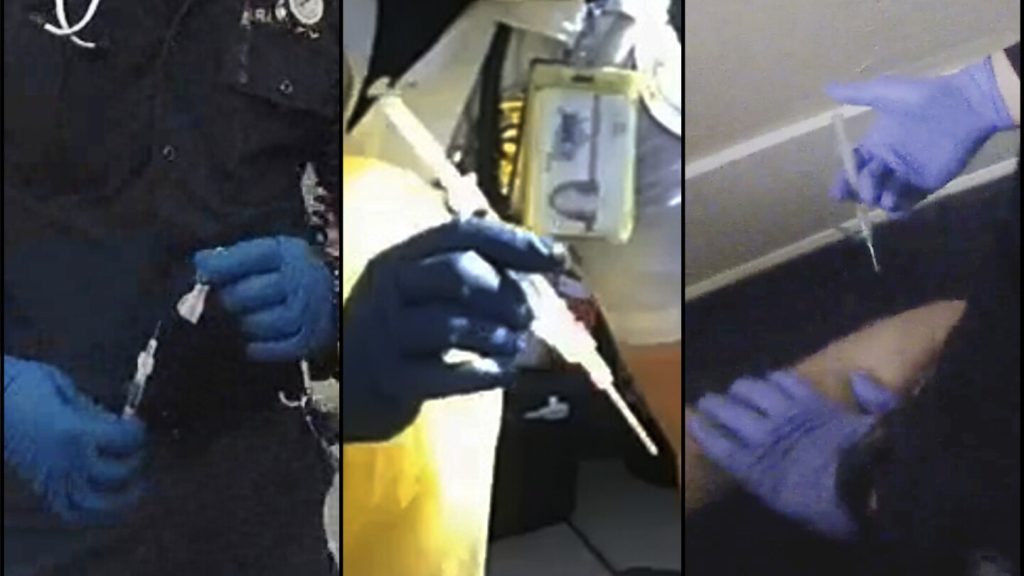Police Arrests Involving Injection of Sedatives Resulting in Deaths Rise Sharply Over the Past Decade
Demetrio Jackson’s tragic death in 2021 highlights a disturbing trend in fatal U.S. police encounters involving the injection of sedatives. Jackson, a 43-year-old man who was arrested by police after a trespassing call, died after being injected with a potent knockout drug. An investigation by The Associated Press found that at least 94 people died after being injected with sedatives and restrained by police between 2012 and 2021. Roughly half of those who died were Black, including Jackson. The use of sedatives and restraints as a method to control individuals detained by police has raised questions about its effectiveness and the potentially fatal consequences.
The use of sedatives in police encounters has become widespread over the past 15 years, with the practice being supported by questionable science and experts aligned with law enforcement agencies. The strategy was initially intended to reduce violence and save lives but has resulted in avoidable deaths. The deaths of those injected with sedatives often involve other factors such as drug or alcohol consumption, use of force, and underlying health conditions. Medical experts have stated that the impact of sedatives on individuals can vary, from negligible effects to triggering heart or breathing failure, depending on the circumstances.
The controversial medical condition of excited delirium has played a significant role in the rise of sedation outside of hospitals. The symptoms associated with excited delirium, such as “superhuman strength” and high pain tolerance, have been criticized for perpetuating racist stereotypes against Black individuals and leading to biased decisions about who needs sedation. The deaths following sedative injections often involve individuals who were already distressed and struggling to breathe due to being restrained facedown by police officers.
In many cases reviewed by the AP, individuals who were injected with sedatives were not necessarily a threat to themselves or others, raising concerns about the appropriateness of the treatment. The influence of police officers on paramedics’ decisions to administer sedatives has been questioned, with some suggesting that law enforcement should not dictate medical care. Families of those who died after being injected with sedatives have raised concerns about the lack of accountability and transparency in these cases, with investigations often focusing on police actions rather than the role of sedation.
Despite the increase in deaths following sedative injections during police encounters, there has been limited action to address the issue. Reforms have been minimal, with some states implementing restrictions on the use of ketamine and other sedatives. The lack of oversight and accountability in these cases has raised concerns about the safety and ethics of using sedatives during law enforcement encounters. Paramedics and medical professionals are calling for changes in training, protocols, and leadership to prevent future deaths linked to the injection of sedatives during police encounters.


